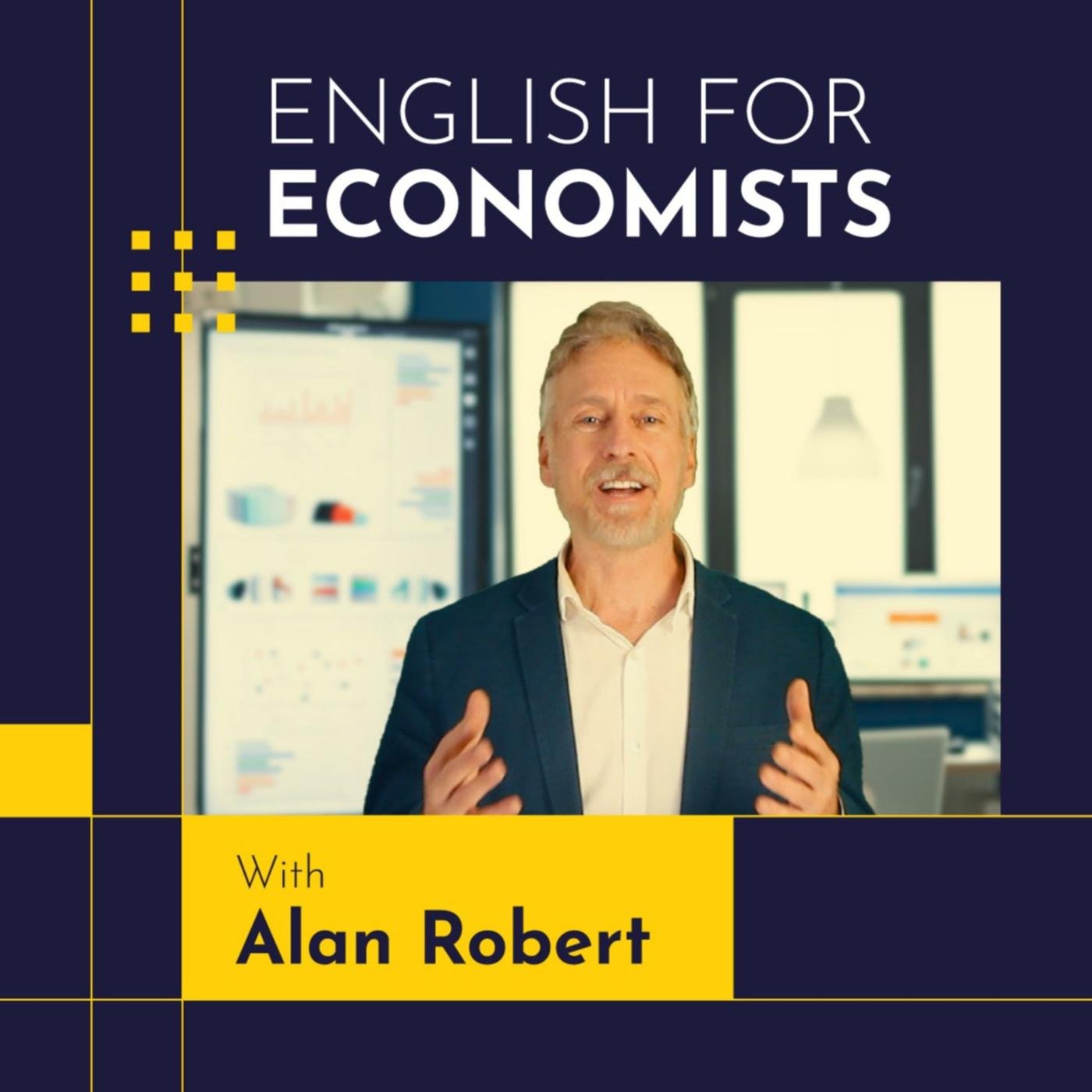
A podcast for people who need to speak and read about the economy in English. Alan Robert has been teaching business English to economists for 20 years. Join him for these weekly business English lessons that include news and headlines you can use to learn the English vocabulary you need to read, write and speak about the economy. These business English podcast lessons focus on current events and teach you English vocabulary for economics finance, business, banking, and government.
Check out this episode and learn another fun and useful word, 'upflation', which you can use to discuss an economic phenomenon in the world of commerce.
Join Alan Robert as he explores the meaning of the expressions 'Raking in Profits' and 'Rose Colored Glasses'.
Do you know what the expression '996' refers to? Join us and find out.
Learn words to discuss the impact of inflation on the consumer of household products, and hear about the rising influence of female business owners.
Learn the meaning of the words:
Learn the words: blowout, ride-hailing, gig workers, and algorithms,
A swan is a beautiful bird that swims in the water. White swans are very common, but you don’t believe a black swan exists until you see one for yourself. The term Black Swan was popularized by Nassim Nicholas Taleb, a renowned professor, economist, and writer. Taleb initially introduced this concept to describe highly improbable events with massive implications in financial markets and later broadened its application to encompass historical, scientific, and other significant occurrences. Nobody sees the coming, and when they do, people say ‘oh, why didn’t we see this coming?’
Welcome to the podcast page for 'English for Economists,' the essential listening experience for professionals advancing their English skills with an economic twist. In our latest episode, #87, host Alan Robert explores the looming threat of a new trade war between China and other global powers. Drawing insights from a recent article in The Economist, Alan discusses China's strategic investments in future economic 'pillars' like lithium-ion batteries, electric cars, and solar panels, and how these moves might ignite global trade tensions. Don't miss out on our unique blend of economic discussion and language education, and remember to check our website for upcoming private classes and the new 'Economists in Action' video course."
In this vocabulary lesson for economists, we'll look at the meaning of the expressions 'dollar bears', 'bond bulls' and 'steady stocks' and the idiom 'getting back on track'. Find show notes here:
https://englishforeconomists.com/bull-bear-and-steady-markets/
Today's lesson introduces you to the name "Buy Now, Pay Later", and teaches you the idiom "Don't bite off more than you can chew".
https://www.Englishforeconomists.com/podcasts/buy-now-pay-later-bnpl-podcast-english-lesson-for-economists
n Episode 84, join us on English for Economists as we delve into an intriguing headline from The Guardian, exploring the concept of a financial windfall